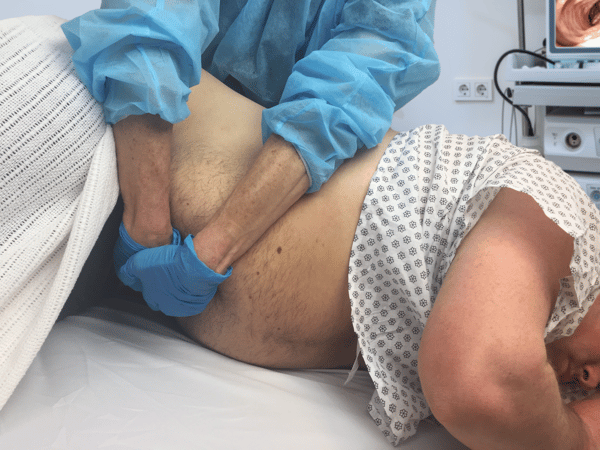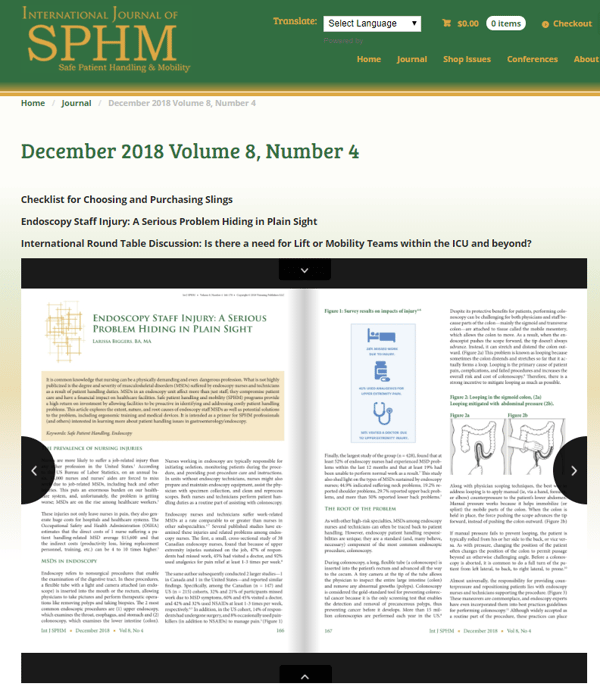The International Journal of SPHM Highlights Endoscopy Nurse Injuries
by Larissa Biggers, on February 01, 2019
An article in the latest issue of The International Journal of SPHM (Safe Patient Handling and Mobility) investigates a significant but rarely publicized problem—musculoskeletal disorders (MSDs) among endoscopy nurses and technicians. “Endoscopy Staff Injury: A Serious Problem Hiding in Plain Sight” provides specifics on the extent, nature, and root causes of endoscopy staff MSDs and includes data compiled from various studies.
- A cross-sectional Canadian study of endoscopy staff found that because of upper extremity injuries sustained on the job, 47% of survey respondents had missed work, 45% had visited a doctor, and 92% used analgesics for pain relief at least one to three times per week.
- In two larger studies (one in Canada and the other in the U.S.), 32% and 21% of participants missed work due to MSD symptoms, 60% and 45% visited a doctor, and 42% and 32% used NSAIDs at least one to times per week, respectively.
- A fourth study found that at least 52% of endoscopy nurses had experienced MSD problems within the last 12 months and that at least 19% had been unable to perform normal work as a result. Almost 45% suffered neck problems, 19.2% had shoulder problems, 29.7% endured upper back problems, and more than 50% reported lower back problems.
 An endoscopy nurse applying manual pressure during colonoscopy
An endoscopy nurse applying manual pressure during colonoscopy
In addition describing the causes and impact of MSDs on endoscopy staff, the article also explores how these injuries compromise patient care and affect healthcare facilities financially. With the lifetime value of one patient estimated at $1.4 million, enhancing patient satisfaction is essential for a healthcare facility’s success in a climate of financial pressure and declining reimbursement.
Because the experiences of staff and patients are intrinsically linked, potential solutions to both the problem of endoscopy staff injury and negative patient outcomes include ergonomic training for staff and the use of medical devices to reduce the physical burdens associated with colonoscopy. In addition, implementing SPHM programs allows facilities to be proactive in identifying and addressing costly patient handling problems.
Read the full article here.



